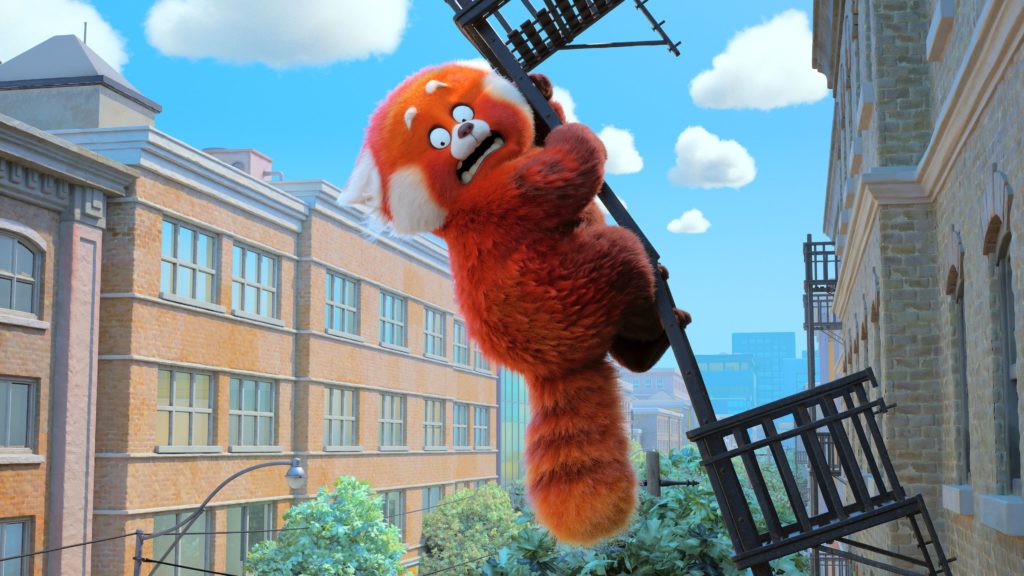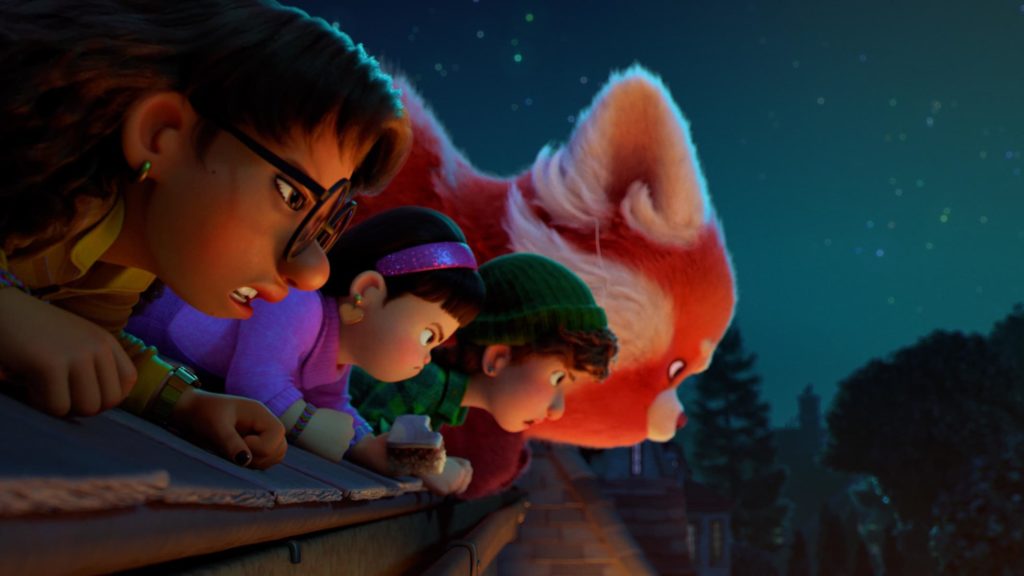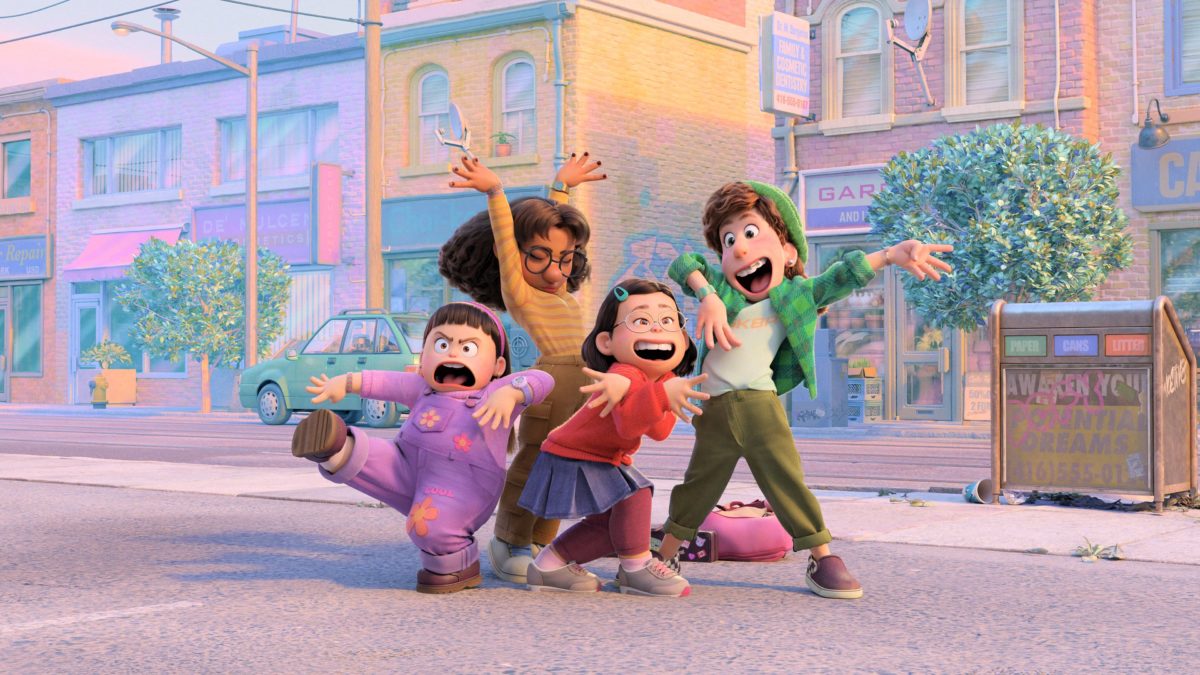The premise of Turning Red — thirteen-year-old Mei Lee transforming into a red panda whenever she gets agitated — is very clearly metaphoric. Actually, I don’t even know if you can call it a “metaphor” given how directly the movie likens it to menstruation (astonishingly so for a PG-rated Pixar movie).
Peculiarly, that metaphor changes abruptly and frequently over the course of the movie. And I enjoyed the wiggly, non-conclusive roundness of the premise. If Mei Lee’s pandafication is first about puberty, it’s later about minority identity, cultural assimilation, generational trauma, performative weirdness, self-autonomy, and outward sexual expression.

This shifting thematic focus perhaps gives the movie some storytelling shagginess (not helped by a lethargic runtime), but it ultimately works. Every one of those complicated concepts is tied together to develop Mei Lee’s character as she comes of age.
Oddly, the movie’s third act shifts its focus more towards Mei Lee’s mom, Ming, adding depth to the parallels between mother and daughter. Thematically, this makes sense: One of the key points of the film is that Mei Lee is going through a journey that mirrors Ming’s, but neither of them quite see it. On the other hand, the extent to which this movie pivots from coming-of-age story to generational drama is a bit unwieldy and part of the reason the movie feels even longer than its 100-minute runtime.
The movie’s animation builds on the trends of recent CGI — a slight shift away from photorealism towards stylized design and animation. There’s a bit of a kitchen sink mentality, too, as we get a bunch of tangential visual riffs: a scene of slow-mo, hyper-real cooking; some spirit world dreaminess; some kaiju allusions; and a concert scene suggesting music video energy. It’s fun stuff, and I was overall quite enthusiastic with the movie’s looks.

The script itself might be a barrier for some — the movie doesn’t shy away from taking a 13-year-old girl’s perspective and making it cartoony and uncomfortable. But the specificity of experience of being a Chinese girl in Toronto in 2002 with a diverse group of loyal (if shallowly-typed) friends, and a complex, healthy relationship with her parents, feels fresh and lived-in.
Ultimately, I am glad that Pixar is letting idiosyncratic, underrepresented creators take swings. The glory days of Pixar might have passed now that the founding fathers — Lasseter, Stanton, Docter, Bird — are past their primes and/or with other studios. But I’d rather get these kinds of personal stories than sequels of diminishing returns and franchise filler (which includes every Pixar sequel that isn’t Toy Story 2 or 3).
Last thought: My single biggest regret for this movie is that wizard chameleon-songwriter Adam Schlesinger passed away from COVID in 2020 and so couldn’t compose the fake boy band songs. They’re fine as is (written by Billie Eilish and her brother), but imagine if they were “That Thing You Do”-level bangers.
- Review Series: 2022: Year in Film
Is It Good?
Good (5/8)
Dan is the founder and head critic of The Goods. Follow Dan on Letterboxd. Join the Discord for updates and discussion.

